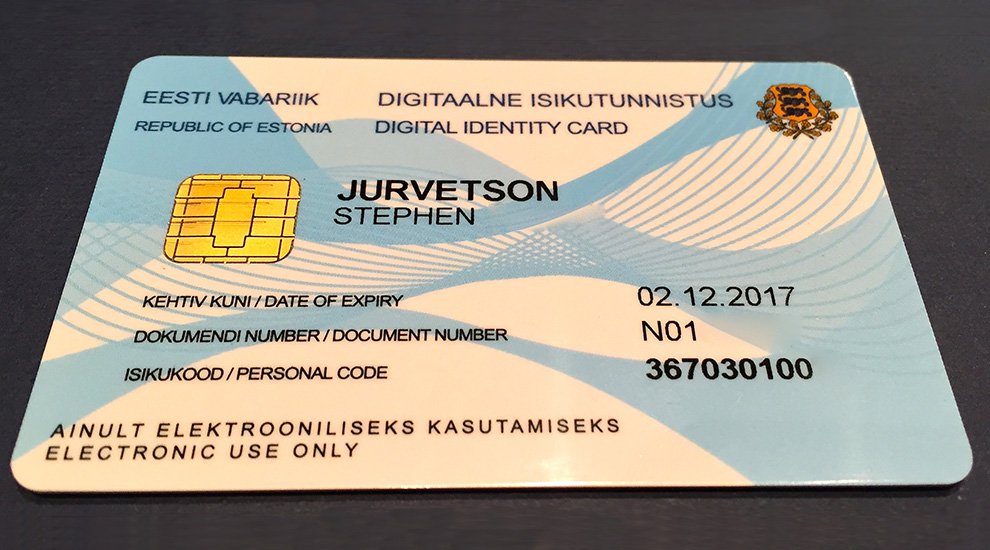Estonian Government Partners with Bitnation to Offer Blockchain Notarization Services to e-Residents
In May, Bitcoin Magazine reported that blockchain-based Governance 2.0 initiative Bitnation is developing a collaborative platform for DIY Governance based on the blockchain.
“Bitnation is a Governance 2.0 Operating System, designed to disrupt the nation-state oligopoly through offering more convenient, secure and cost-efficient governance services,” said Bitnation founder and CEO Susanne Tarkowski Tempelhof.
Bitnation is one of several emerging initiatives to empower connected global citizens with a growing range of options to bypass legacy governance systems based on nation states. The e-Residency program launched by the government of Estonia is another such initiative.
The program offers anyone, anywhere, a digital identity issued by the Estonian government and the possibility to start and operate a business online under Estonian regulations. The foreigners who become e-residents of Estonia are not automatically entitled to physical residency in the small Baltic state, but they can base their online financial life there.
Estonia, a country at the forefront of modern e-government, has been offering efficient online services to its citizens for more than a decade.
“By offering e-residents the same services, Estonia is proudly pioneering the idea of a country without borders,” proudly states the e-residency website. In particular, e-residents can digitally sign, verify and encrypt documents and contracts, establish an Estonian company online in 24 hours with a physical address in Estonia provided by an external service, and administer the company from anywhere in the world.
Currently, establishing an Estonian bank account for the company requires one in-person meeting at one of the banks that recognize e-resident smart ID cards – currently LHV, Swedbank and SEB – but once the account is established e-residents can manage e-banking and remote money transfers from anywhere in the world.
An appealing feature of e-residency for entrepreneurs is that, in Estonia, company income is not taxed. Therefore, compliance is simplified and all income is available for re-investment. However, since e-residency doesn’t imply tax residency, e-residents are supposed to pay taxes at home for the money that they take out of the company.
Now, the Estonian government is partnering with Bitnation to offer a public notary service to Estonian e-residents based on blockchain technology.
“Via the international Bitnation Public Notary, e-residents, regardless of where they live or do business, will be able to notarize their marriages, birth certificates, business contracts, and much more on the blockchain,” states a joint press release.
“I’m delighted to work with Estonia’s e-residency program to set a standard practice of competition of governance services on a global market, and to enable others to exercise self-determination and follow Bitnation’s path to sovereignty,” said Tarkowski Tempelhof in the press release.
“The Republic of Estonia is on the forefront of innovation when it comes to e-governance,” Tarkowski Tempelhof told Bitcoin Magazine. “They’re mostly young and open-minded, eager to test new technologies to improve their services. Additionally, their processes are quite streamlined, which is original for being a government, and needless to say, very refreshing.”
If a couple gets married on the public notary, it doesn’t mean they get married in the jurisdiction of Estonia, or in any other nation state jurisdiction, notes the press release. Instead, they get married in the “blockchain jurisdiction.”
International Business Times notes that, besides marriages, blockchain technology can provides a worldwide legally binding proof of existence and integrity of contractual agreements for things such as banking, incorporating companies quickly and cheaply and generally empowering entrepreneurs and citizens around the world.
“In Estonia we believe that people should be able to freely choose their digital/public services best fit to them, regardless of the geographical area where they were arbitrarily born,” said e-Residency Program Director Kaspar Korjus. “We’re truly living in exciting times when nation states and virtual nations compete and collaborate with each other on an international market, to provide better governance services.”
In fact, the importance and potential impact of the Estonian government’s move shouldn’t be underestimated. Here we have the government of a nation state, a full member of the European Union, acknowledging a virtual nation as a legitimate partner for the development and gradual implementation of next-generation governance services.
“My aim is to see a world where hundreds of thousands or millions of governance service providers in a free global market competing through offering better services at a better value, rather than through the use of force within arbitrary lines in the sand,” Tarkowski Tempelhof told Bitcoin Magazine. “To that end, seeing nation state governments starting to provide governance services on a free global market as well, like The Republic of Estonia, is encouraging, and a step in the right direction. Now we need more nation state governments, as well as open source protocols joining the global market.”
Tarkowski Tempelhof added that, realistically, it’s more likely that small nations will adopt the technology in the short term.
“Countries and city states that come to mind are Singapore, Lichtenstein, Andorra, etc.,” she said. “We’re also likely to see nations in the developing world leapfrogging in terms of governance technologies.”
Photo Steve Jurvetson / Flickr(CC)
The post Estonian Government Partners with Bitnation to Offer Blockchain Notarization Services to e-Residents appeared first on Bitcoin Magazine.



